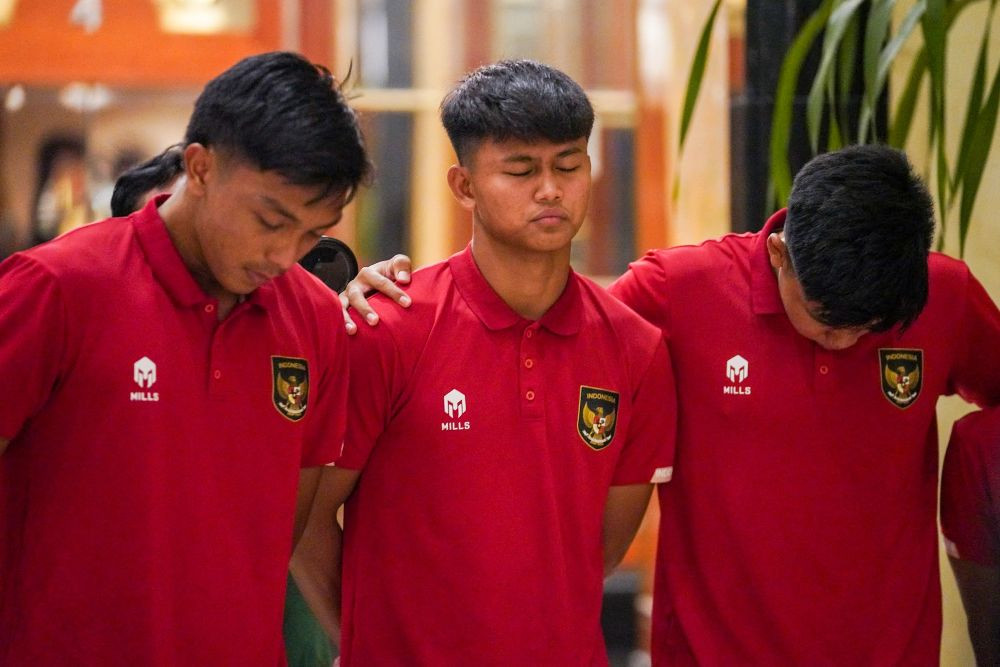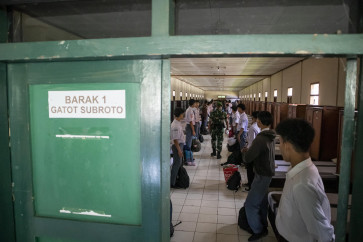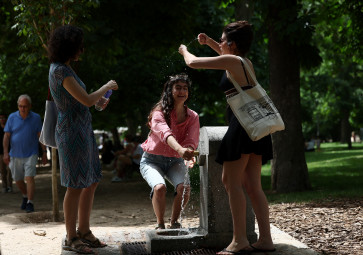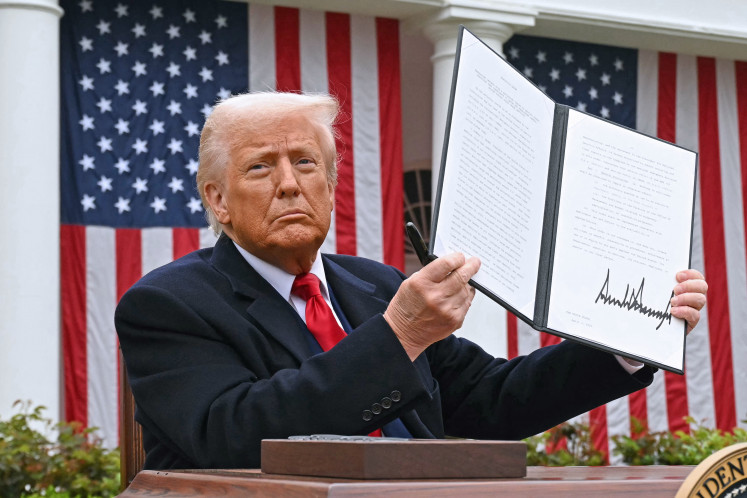Ganjar, Koster made into pariahs over U-20 cancellation
Hokky Caraka, a professional soccer player and member of Indonesia’s U-20 national team, was quick to point out the irony of an Instagram post by Ganjar on Wednesday, where he shared tips on how to be happy in old age.
Change text size
Gift Premium Articles
to Anyone

I
ndonesian social media was set ablaze early on Thursday after world soccer’s governing body FIFA announced the removal of Indonesia as the host of the U-20 World Cup, with criticism and hate directed at politicians who propped up the resistance against the participation of the Israeli national team that eventually led to FIFA’s decision.
Despite a last-ditch attempt by new Soccer Association of Indonesia (PSSI) chief Erick Thohir to lobby FIFA president Gianni Infantino in Doha on Wednesday, the federation announced in an official statement hours later that it had revoked Indonesia’s license to host the tournament, without any mention of the Israel boycott.
FIFA also noted “potential sanctions against the PSSI may also be decided at a later stage”. Indonesia was banned by FIFA for a year in 2015 over government interference.
As Indonesian soccer fans feared a possible PSSI ban from FIFA, as well as the ensuing damage that the U-20 competition’s cancellation might have on the country’s credibility to host international sporting events, many have taken to social media to vent their frustrations toward politicians such as Central Java Governor Ganjar Pranowo and Bali Governor Wayan Koster from the ruling Indonesian Democratic Party of Struggle (PDI-P).
Hokky Caraka, a professional soccer player and member of Indonesia’s U-20 national team, was quick to point out the irony of an Instagram post by Ganjar on Wednesday, where he shared tips on how to be happy in old age.
“We know that you have a bright future, but what about us? We just wanted to take our career in a better direction, but our stepping stone to do that has been destroyed by you,” Hokky posted on Ganjar’s post. His comment has since been removed.
Rabbani Tasnim, another member of the Indonesian U-20 team, also took to the popular platform to criticize the PDI-P frontrunner for the 2024 presidential ticket. “Are you satisfied by destroying one of our biggest dreams?... [Our weeks of training] were made to be for naught just in a moment because of your political reasoning,” he stated.
Head coach Shin Tae Yong said he was “heartbroken” and “tired” after preparing the team for more than three years for the youth football showpiece, AFP reported.
In support of the youth soccer team, many social media users jumped on the bandwagon to criticize Ganjar, and to a lesser extent, Koster.
Both figures were among those responsible for popularizing a movement to ban Israel from competing on Indonesian soil, by calling on the current administration to emulate the decision by Indonesia’s first president Sukarno to ban Israel from the 1962 Asian Games.
Sukarno is the father of PDI-P chairwoman Megawati Soekarnoputri, who gets to decide who the party fields in next year’s presidential and regional elections.
Koster on Thursday cited the occupation of Palestinian lands and “threat and security” concerns for rejecting Israel’s participation, comparing his call for a ban to Russia’s exile from the 2022 World Cup in Qatar.
The boycott only gained traction in recent weeks, despite an insistence by the Palestinian Ambassador to Indonesia Zuhair Al Shun that his country would have no qualms with Indonesia about hosting Israel.
Dino Patti Djalal, a former Indonesian ambassador and founder of the youth-focused Foreign Policy Community of Indonesia (FPCI), took to Twitter in response to the controversy.
He took note of the many instances over the years where the presence of Israeli representatives was hardly debated, whether in the UCI Track Nations Cup cycling tournament in Jakarta in February, the Inter-Parliamentary Union (IPU) meeting in Bali last year, or the 2007 United Nations Climate Conference (COP13), also in Bali.
“All these events took place without shifting Indonesia’s firm and principled support for Palestinian independence. Our stance regarding the U-20 was massively politicized,” he stated.
Indonesia and Israel do not have formal diplomatic relations, and support for the Palestinian cause in the world’s most populous Muslim-majority nation runs high, fuelling local opposition to hosting the Israeli team.
The PDI-P, the nationalist ruling party of President Joko “Jokowi” Widodo and Koster, in a statement expressed regret about the decision but said it had sought for Israel to play its games in “the nearest neighboring country”.
But there was popular support for the tournament – which the country was handed in 2019 – with many viewing it as a source of national pride.
FIFA’s decision to find a new host – thereby nixing Indonesia’s automatic qualifying spot – puts the country’s most popular sport back in the doldrums and facing another bout of isolation as it recovers from a stadium stampede that killed 135 people last year.
Indonesian officials said losing the tournament could cost the country hundreds of millions of dollars.









